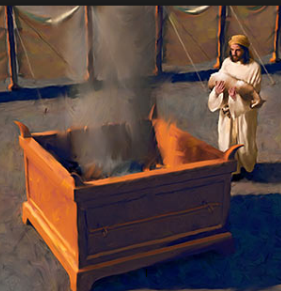
Why did Jesus have to die? The traditional answer to this fundamental question is short and to the point:
Jesus died to substitutionally take the punishment of God which people deserved, because of their sins. Blood had to flow, otherwise God cannot forgive sins.
This explanation is as widespread as it is unbiblical. We never read in Scripture that Jesus, on the cross, suffered the punishment or wrath of God. The cross was the suffering that people imposed on Him and God gave Him over to his enemies. In His dying, no justice was effected, but rather the greatest injustice was committed: a perfectly innocent one was gruesomely killed.
But then that other point. Does the Scripture not say (Heb.9:22) that without the shedding of blood is no remission. Indeed, the entire sacrificial service shows that God covers the sins by means of an animal that is slain. But make no mistake: the mere slaying of an animal is not a sacrifice. The sacrifice takes place after the slaying, when the slain animal is lifted onto the altar and ascends as a sweet savor unto God. As the slaying refers to Golgotha (an innocent one gives his blood), so the sacrifice refers to the resurrection on the third day, where God is the one who kindles that sacrifice. People brought Jesus to death, but God roused Him from among the dead (Acts 2:23,24). Only by dying could death be overcome.
Without the shedding of blood is no remission. But only through the shedding of blood, there is no forgiveness either. Forgiveness (=liberation) is found in the follow-up sacrifice: the resurrection from the grave.
———————————
Translation: Peter Feddema

